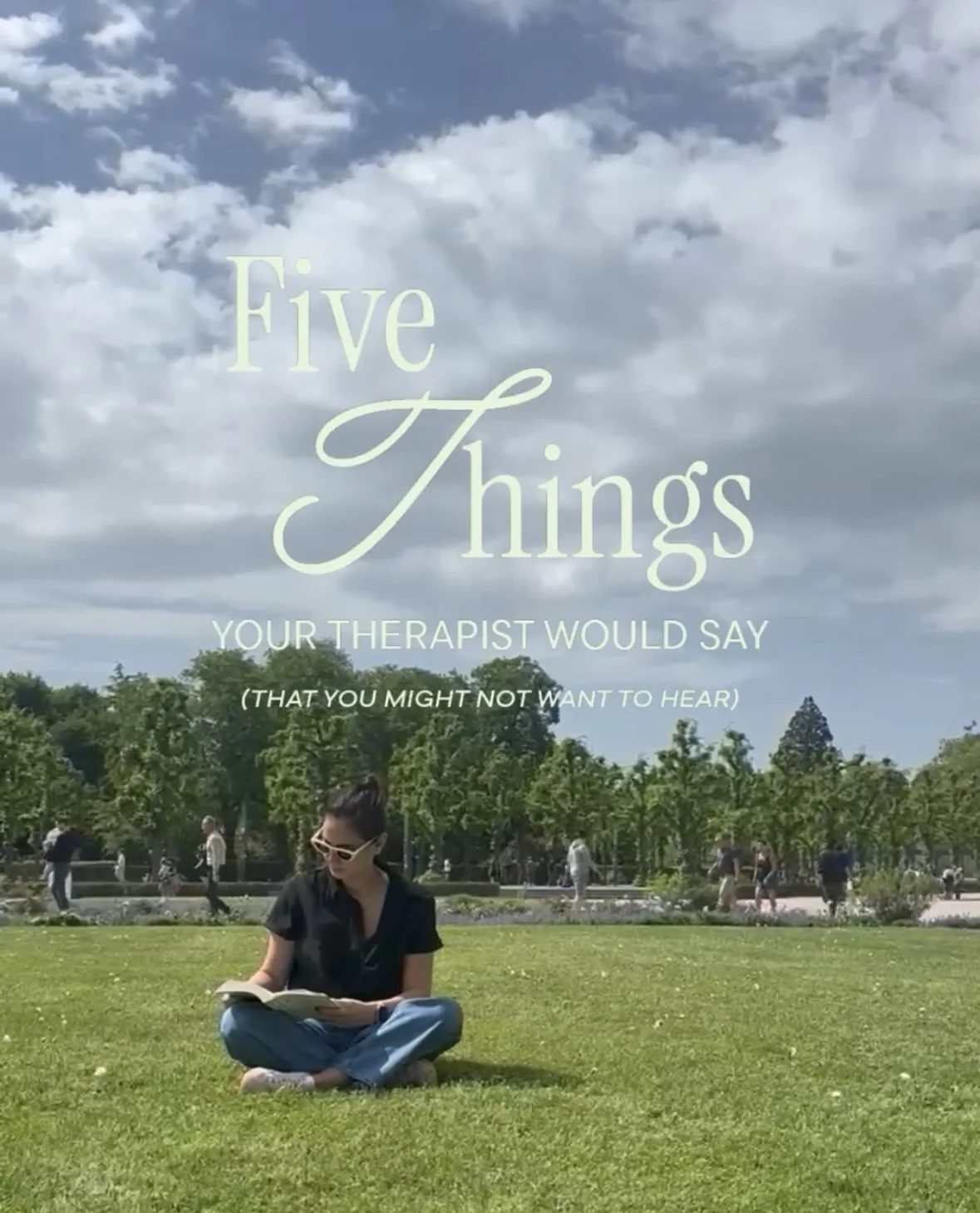Things Your Therapist Might Say That You Don’t Want to Hear—But Probably Need To
Therapy isn’t always comforting. In fact, some of the most transformative moments come wrapped in discomfort. We are confronted with truths we have managed to avoid, defence mechanisms we didn’t know we had, and versions of ourselves we barely recognise.
Here are five uncomfortable truths that often surface in therapy: truths that can sting, but also set the stage for deep healing and growth.
1. Healing asks us to let go of the identity we have built around our pain.
When we go through hardship, whether it is trauma, loss, rejection, or emotional distress, our brain builds a narrative around the experience. This narrative becomes part of our identity: "I am the one who was abandoned," or "I always have to be strong for everyone," or "People cannot be trusted." Over time, these narratives become deeply woven into how we see ourselves and move through the world.
However, healing requires us to rewrite those scripts. To shed the armour that once protected us but now keeps us from connection. This letting go can feel like grief, because in many ways, it is. We are grieving a version of ourselves that got us this far. But healing invites us to release that version, not in betrayal, but in gratitude, and step into a self no longer shaped by survival.
2. If you are not sure who you really are, it might be because you have spent years being who others needed you to be.
People-pleasing is not just about being nice. It is often a survival strategy rooted in childhood, when love and safety felt conditional. Perhaps you learned to stay quiet to avoid conflict, or took on a caretaker role to feel needed. Over time, your sense of self was shaped by what others required of you, not by who you truly are.
Eventually, you may wake up not recognising your own voice. Preferences, desires, even core values can feel fuzzy or foreign. And the work of therapy becomes a slow, compassionate process of rediscovering who you are, outside of your roles, obligations, and the expectations placed upon you.
It is not selfish to explore your identity. It is essential to healing.
3. If someone treating you kindly feels overwhelming, it could be because kindness was not your baseline growing up.
Many people associate emotional intensity with love, because that is what they experienced in childhood. Perhaps love came with criticism, hot-and-cold behaviour, or emotional unpredictability. When you are raised in an environment where safety is not the norm, your nervous system adapts. Calm and consistent kindness can then feel unfamiliar, even threatening.
That is why some people unconsciously reject or sabotage healthy relationships. Not because they do not want them, but because their body is wired to interpret calm as suspicious and chaos as normal. Therapy helps retrain the nervous system to recognise real safety, not as a danger, but as home.
Kindness is not overwhelming. You were simply never taught to trust it.
4. There are moments when their absence is easier to accept than their constant disrespect.
One of the hardest truths in therapy is confronting relationships that are emotionally damaging. Especially when those relationships are with family, long-time friends, or romantic partners. You may hold onto the connection out of loyalty, guilt, or the hope that things will change. But chronic disrespect, dismissal, or boundary violations take a toll on your self-worth.
Learning to choose peace over proximity is a profound act of self-respect. It does not mean you hate the person, it means you have stopped allowing their behaviour to hurt you. And sometimes, the healthiest move is to love someone from afar.
Letting go is not weakness. Sometimes it is the most loving thing you can do for them and for yourself.
5. You might say you are not good at communication, but maybe what you are really afraid of is conflict or being misunderstood.
Many people claim they “are not good at communication.” But often, it is not a lack of skill. It is a fear of what will happen if they express themselves honestly. Perhaps you were punished for speaking up. Perhaps your needs were minimised or met with anger. So you learned it was safer to stay quiet.
However, avoidance has a cost. It keeps us from advocating for ourselves, setting boundaries, or forming deep, honest connections. Healing invites you to unlearn that silence. To feel safe enough to speak, even when your voice shakes. Even when there is no guarantee you will be understood.
These five reflections are not easy to sit with, but the truths that make us uncomfortable are often the ones that move us forward.
Healing is rarely a straight path. It is layered, non-linear, and deeply personal. But each time you face a difficult truth with honesty and self-compassion, you take a step closer to emotional freedom. You begin to loosen the grip of old patterns, reclaim your voice, and reconnect with the parts of yourself that were silenced, dismissed, or hidden away for safety.
If any of these points stirred something in you, take that as a signal not that something is wrong with you, but that something in you is ready to grow.
You are allowed to evolve. You are allowed to unlearn. And you are allowed to choose a life that feels true, even if it means letting go of who you had to be in order to survive.
Your healing is not a return to who you were. It is becoming who you want to be.

